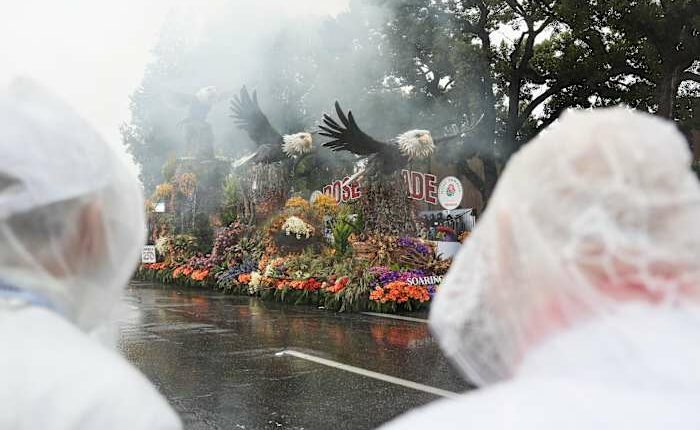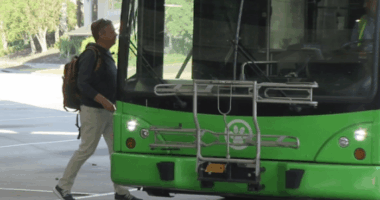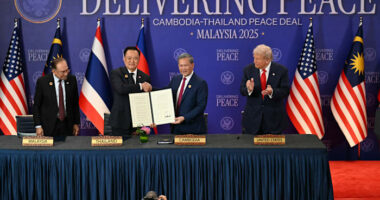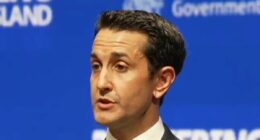Share this @internewscast.com

For the first time in two decades, rain drenched the legendary Rose Parade on Thursday, ushering in 2026 with flood alerts and evacuation orders across Southern California. Concurrently, the nation’s central regions faced snow squalls and biting cold temperatures.
The 137th Rose Parade in Pasadena witnessed downpours that drenched marching bands, floats, and enthusiastic onlookers with one to two inches (2.5 to 5 centimeters) of rain on New Year’s Day. The festivities began at 8 a.m. amid a brisk 58 degrees Fahrenheit (14.4 degrees Celsius).
In contrast, New York City revelers greeted the New Year with hats and gloves as essential gear alongside noisemakers at the annual ball drop, experiencing the chilliest temperatures in a decade, hovering near freezing.
Hundreds of thousands lined the nearly six-mile (10-kilometer) parade route in Pasadena, as the two-hour event unfolded. Millions more tuned in via national broadcasts. The Pasadena Tournament of Roses, which orchestrates the parade ahead of the Rose Bowl college football game, made minimal adjustments for the weather. Convertibles carrying grand marshal Earvin “Magic” Johnson and other VIPs paraded with their tops up.
As the week progressed, forecasts warned of rain for the Rose Parade, which had enjoyed a 20-year dry spell. On Thursday, the National Weather Service issued a flood watch for all California counties, along with a coastal flood advisory extending through Sunday afternoon for much of the Pacific Coast near San Francisco.
Meanwhile, evacuation warnings were issued for residents in regions severely affected by last year’s devastating wildfires around Los Angeles.
In New York City, the sun came out ahead of Mayor Zohran Mamdani’s inaugural celebration, but other areas of the Northeast and Midwest were hit by an Alberta clipper storm and trailing Arctic front that brought snow squalls and high winds.
Conditions varied widely — from snow showers to heavier squalls — from Wisconsin through northern Illinois and Michigan and into northern New Jersey, southeastern New York and New England.
About a quarter of flights were delayed out of both San Diego International Airport and Boston Logan, according to the flight tracking website FlightAware.
Copyright 2026 The Associated Press. All rights reserved. This material may not be published, broadcast, rewritten or redistributed without permission.









